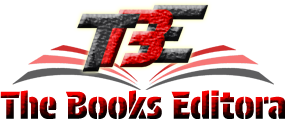The role of a Notary Public is vital in maintaining the integrity of legal and official documentation. In the state of New York, notaries act as impartial public officers, authorized by law to perform a range of duties including administering oaths, affirmations, and witnessing the signing of important documents.
The Importance of Practice Tests in Notary Preparation
Although this article does not include practice questions, it’s important to understand the value of practice tests—especially the free NC Notary Public practice test with answers, which are commonly used online as preparatory tools.
Why Practice Tests Matter:
Build Confidence
Knowing what to expect on the test reduces anxiety. Practice tests simulate the exam environment, helping applicants become comfortable with timing and question formats.
Identify Weak Areas
Practice exams help identify which topics require more focus, allowing for targeted study rather than broad memorization.
Reinforce Learning
By applying knowledge in a question-and-answer format, learners reinforce legal concepts and procedural rules, improving retention.
Track Progress
Scoring practice tests can show how well a person is likely to perform on the actual exam, providing a benchmark for improvement.
Who Is a Notary Public?
A Notary Public is a public officer appointed by a state government to serve as an impartial witness to the signing of important documents, affirmations, and oaths. Their primary responsibility is to prevent fraud and ensure the integrity of the legal system by verifying the identity of signers and ensuring that they are signing willingly and knowingly.
Common Notarial Acts in New York:
- Administering oaths and affirmations
- Taking affidavits and depositions
- Certifying acknowledgments and executing jurats
- Witnessing signatures
- Performing copy certifications (in some cases)
Why Become a Notary Public in New York?
Becoming a notary in New York can bring a host of benefits—both personal and professional.
Career Advancement
Many industries—especially law, banking, insurance, and real estate—value employees who are notaries. It streamlines operations and reduces the cost of outsourcing notarial acts.
Additional Income
Notaries in New York can charge fees for their services. While the state regulates the maximum fees (currently $2 per notarization), many notaries operate as mobile notaries or loan signing agents, which can offer significantly higher earnings.
Public Service
Notaries serve the community by ensuring the proper execution of important documents, helping prevent fraud, and offering legal services access to underserved populations.
Professional Credibility
Being a notary enhances your credibility, trustworthiness, and professionalism in both business and civic contexts.
The New York Notary Public Exam
All new applicants are required to pass a multiple-choice written exam administered by the New York State Department of State. The exam tests knowledge of:
- New York notary laws
- Procedures for administering oaths
- Powers and duties of notaries
- Legal terminology
- Restrictions and prohibitions
While the test is not considered highly difficult, it does require preparation to pass, especially for those unfamiliar with legal language or administrative procedure.
Renewing Your Commission
The renewal process is simple and can be completed by submitting a renewal form and fee before your current commission expires. No exam is required for renewal unless your commission has lapsed.
Duties and Responsibilities of a New York Notary Public
Ensuring Document Integrity
A notary’s primary role is to verify identity and witness signatures. This prevents fraud and guarantees that the signer is aware of the document’s content.
Acting Impartially
A notary cannot have a direct or financial interest in the documents they notarize. Objectivity is critical to maintaining trust in the process.
Keeping Accurate Records
While New York does not legally require notaries to keep a journal, it is strongly advised to record all notarial acts for legal protection and clarity.
Rejecting Improper Requests
Notaries are expected to refuse service if:
- A document is incomplete or contains blanks
- The signer is not present
- The signer is under duress or mentally incapable
- Proper identification is not provided
Common Mistakes to Avoid
Not Reading the Notary Law
Many applicants fail the exam because they rely on hearsay or outdated information. Always consult the official law booklet.
Not Using Practice Tests
Skipping practice tests can lead to poor performance on the actual exam. Even free resources from other states, like NC, can help reinforce general knowledge.
Not Understanding Limitations
New York notaries cannot:
- Offer legal advice
- Notarize documents they have an interest in
- Use their title for advertising unrelated services
Failing to Renew on Time
Missing the renewal window requires re-taking the exam.
Conclusion
Becoming a Notary Public in New York is a meaningful step toward professional growth, community service, and financial opportunity. By understanding the requirements, responsibilities, and best practices—including the role of practice tests in preparation—you can position yourself for success in this highly trusted role.
While New York-specific preparation is crucial, free NC notary public practice tests with answers can serve as a valuable study aid, helping reinforce key concepts and test readiness. Just be sure to cross-check laws and terminology with official New York resources.

